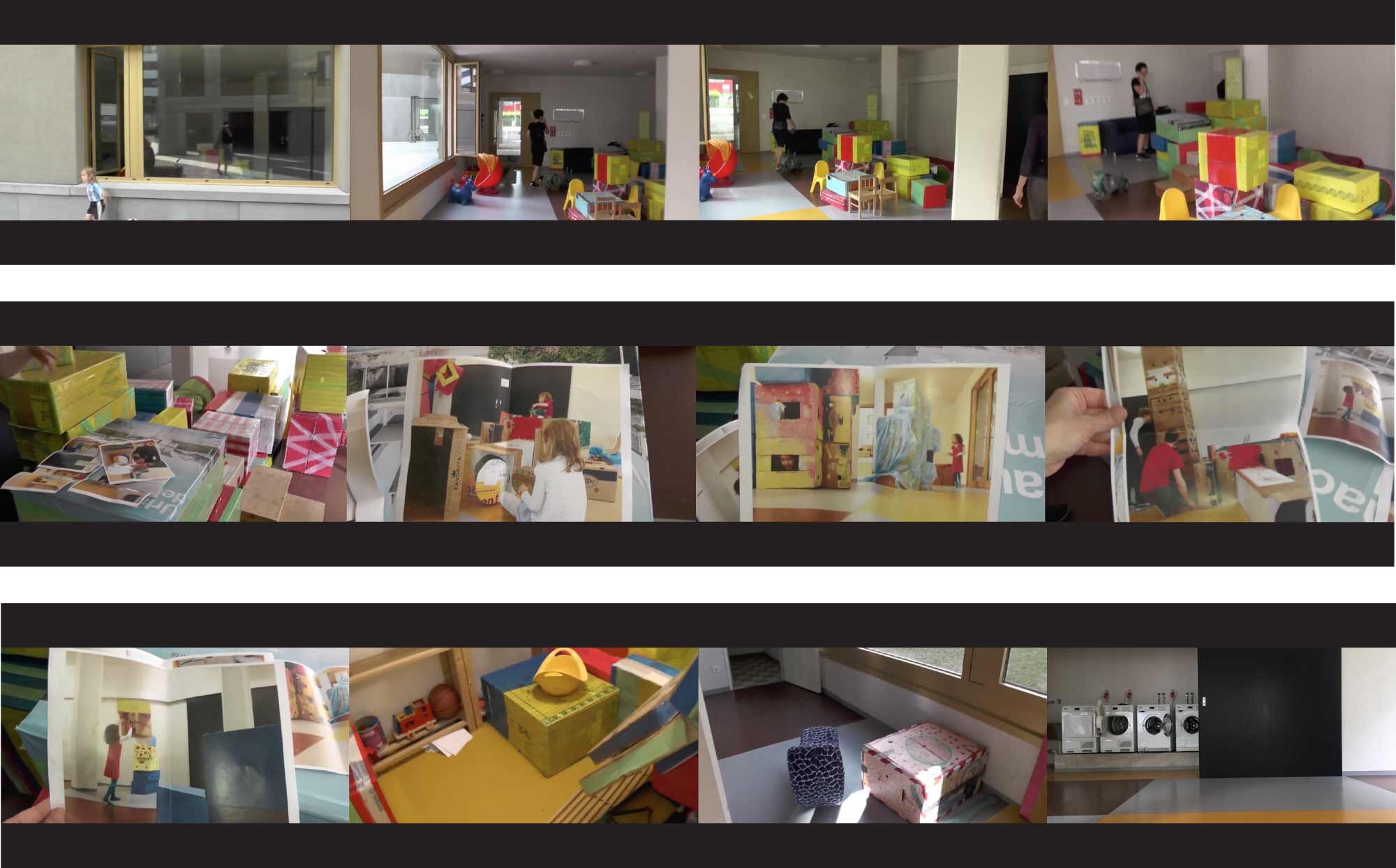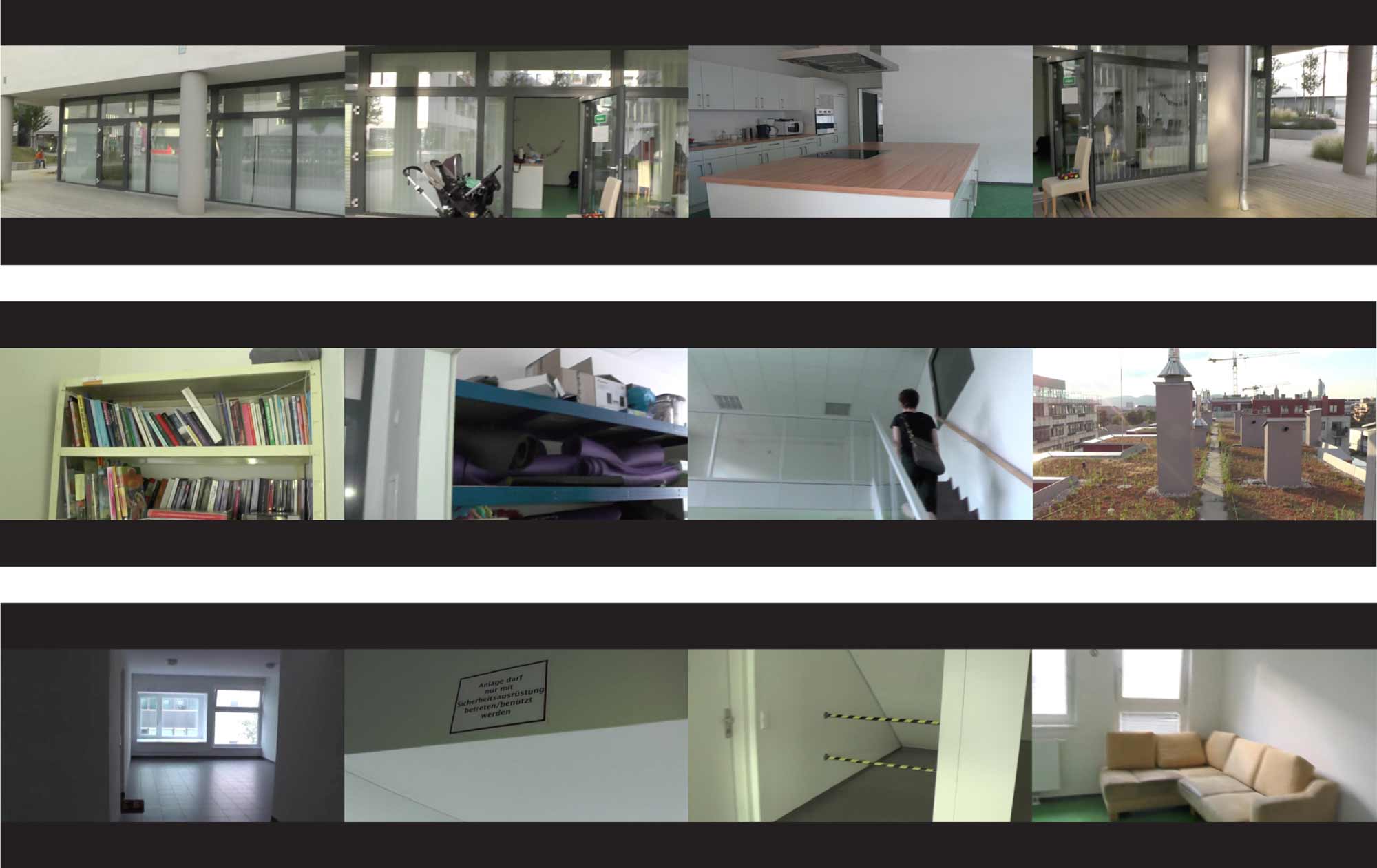- Login
Critical Spatial Practice


‘What would caring architecture and urban design require? … Using care as a critical concept will require a fundamental reorientation of the disciplines of architecture and urban planning.’ Joan Tronto, ‘Caring Architecture’, in Angelka Fitz and Elke Krasny (eds.), Critical Care: Architecture and Urbanism for a Broken Planet (Cambridge, MA: MIT Press: 2019), p. 26.
The legendary Swedish welfare state model comprised, on its smallest scale, an infrastructure of ‘common rooms’ (gemensamhetslokaler) in public housing, for tenants to meet and organize politically. Since the 1990s, common rooms have largely disappeared from housing in Sweden, simultaneously with the selling off of much of Allmännyttan, the public Swedish non-profit housing system (1931–2011). Common rooms are still central to Viennese housing policy, which are rooted in the welfare state of the Red Vienna period, 1918–1933. Unlike in Sweden, in Vienna, common rooms have recently received new attention in policy-making for more sustainable housing. In this project, we explore common rooms as a spatio-social concept inspired by ‘the commons’ and ask: Is it possible to use the Swedish and Viennese models as discursive frameworks for imagining future care structures?
Together with urban planner and activist Beatrice Stude, in summer 2017, Action Archive initiated a field study of common rooms (Gemeinschaftsräume) in Nordbahnviertel, currently among the largest urban development zones of Vienna. During two weeks fieldwork including guided tours with residents and interviews with district managers and non-profit housing developers, we learned about legal forms and subsidies of housing in relation to resident experiences of involvement in the creation, appropriation and maintenance of their common rooms. Management and inhabitation of common rooms was accompanied, partly by overregulation manifesting in ‘paranoid constructions’, as well as self-organized ‘rituals of care’ as in common maintenance sessions. We propose the early welfare state model with its ‘zones of life’ outside market logic including housing and the current Viennese model as a laboratory for exploring different modes of the common, ranging from the material, spatial and imaginary of the political to self-organization and hands-on political decision-making with support of practice-oriented policies and regulations.
Action Archive (AA) is a not-for-profit organization founded by Sara Brolund de Carvalho, Helena Mattsson and Meike Schalk in 2013 in Stockholm. AA pursues participatory historical records through actions that bring together diverse actors and a public around urban cultural, historical, and political issues by employing experimental research formats such as witness seminars, Forum Theater methods, guided walks, films, re-enactments, and collective time-space mappings. The project ‘Caring for Communities’ is part of the exhibition Critical Care: Architecture for a Broken Planet, Architekturzentrum Wien, 14 April–9 September 2019, curated by Angelika Fitz and Elke Krasny. It concludes with ‘Theatre of Care’, performed 8 September in Vienna and the publication Caring for Communities: The Swedish and Viennese Model (forthcoming, 2019).
Sara Brolund de Carvalho is an architect, artist and educator based in Stockholm, and artist in residency with Action Archive at Iaspis – the Swedish Arts Grants Program (autumn 2019 to spring 2020). Helena Mattsson is professor of Architecture History and Theory at the KTH School of Architecture in Stockholm and visiting scholar at Yale University (2020). Her latest publications include Solid and Flows: Architecture and Capitalism, ed. with Catharina Gabrielsson, Architecture and Culture, 5.2 (2017). Meike Schalk is associate professor of Urban Design and Urban Theory at the KTH School of Architecture in Stockholm and guest professor at the School of Architecture of TU Munich (2019-2020 winter term). Her latest publications include Feminist Futures of Spatial Practice: Materialisms, Activisms, Dialogues, Pedagogies, Projections, ed. with Thérèse Kristiansson and Ramia Mazé (Baunach: AADR/ Spurbuchverlag, 2017). Beatrice Stude is a city planner and activist in Vienna. She has worked with project development for more than ten years and has supported the founding of the non-profit Munus Foundation. She is also a member of the Radlobby (bicycle lobby) board.
‘Critical spatial practice’ (Jane Rendell, 2006, 2011) has been a source of inspiration for our feminist research practices, in various collaborations (i.e. within the group FATALE and together with the collective MYCKET). Our work engages in expanding possibilities of research in architecture through collective actions together with audiences. For this purpose we have adopted methods from theatre and performance studies such as Augusto Boal’s Forum Theatre and borrowed formats from contemporary history studies such as the witness seminar. A critical spatial practice means for us an ethical practice which is inclusive and respectful.
Virginia Woolf’s A Room of One’s Own (1929).
Donna Haraway’s “Situated Knowledges: The Science Question in Feminism and the Privilege of Partial Perspective” (1991) and other contributions in Sandra Harding’s The Feminist Standpoint Theory Reader (2004).
Maria Mies and Veronika Bennholdt-Thomsen’s The Subsistence Perspective: Beyond the Globalised Economy (1999) and J.-K. Gibson-Graham’s work on the “Diverse Economy” (1996, 2006 and ongoing).
A conference paper ‘Rituals of Care: Reimagining Welfare’, n. 8 (2019): Nordes 2019: Who Cares?, can be downloaded from: http://nordes.org.linux159.unoeuro-server.com/opj/index.php/n13/article/view/457/428.
The project is also discussed in the chapter ‘The Changing Ways of Being in Common: From Collective to Common Spaces in Welfare Housing, in Angelika Fitz and Elke Krasny (eds.), Critical Care: Architecture for a Broken Planet (Cambridge, MA: MIT Press, 2019), pp. 131-7.



































































